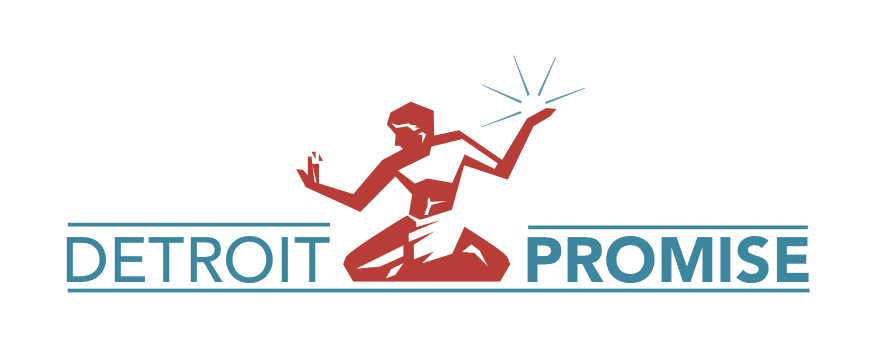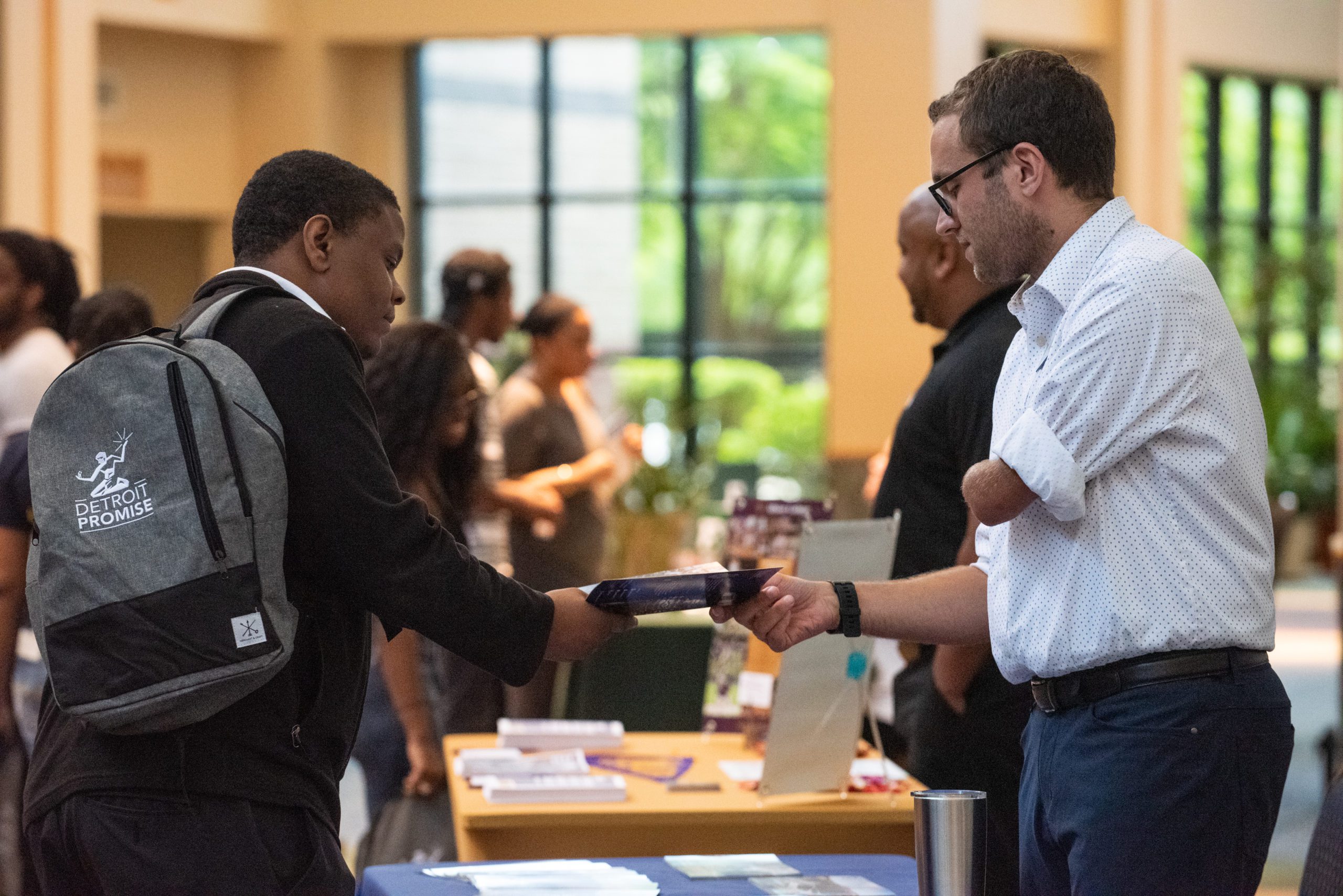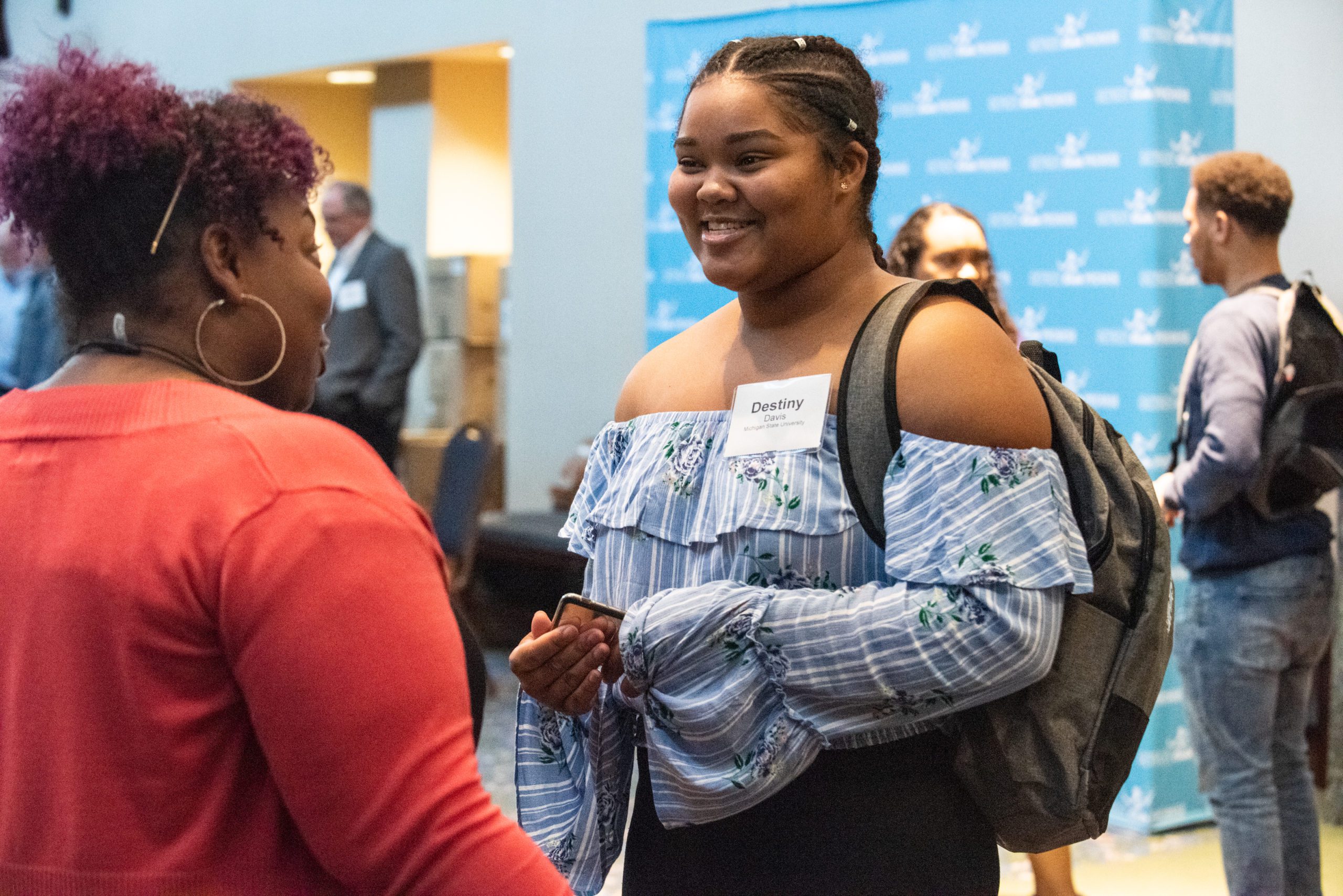A Promise Kept: Detroit’s Tuition-Free Path
January 5, 2021In 2013, the Detroit Regional Chamber began administering the Detroit Promise Scholarship program to provide eligible Detroit high school graduates with access to a tuition-free community college education. The program was expanded in 2016, granting free tuition to eligible students pursuing a four-year degree. This year not only marks the seventh anniversary of the scholarship program, but it also commemorates the first cohort of students who graduated from a four-year institution with the support of the scholarship program.
“Our program has been a game-changer for the city of Detroit,” says Ashley Johnson, director of Detroit Promise for the Detroit Regional Chamber. “It’s really helped to give people a tuition-free pathway to college.”
Since its inception, Detroit Promise has helped over 4,000 students alleviate worry and stress over tuition fees and graduate with a degree, debt-free. Each year, the the Chamber-administered program helps between 400 and 500 students attend community college and about 200 – 250 students attend four-year universities. It’s helped students like Kalani Olatunji, a graduate of Cass Tech High School who leveraged the Detroit Promise to attend Henry Ford College. She is in the process of transferring to Wayne State University in the fall to major in English with a minor in foreign language.

While the financial assistance is certainly a benefit, Olatunji says that having a Detroit Promise Path Campus Coach has been the key to her success in school. From working with her coach, Mark Yancy Jr., Olatunji said that she’s been “pushed to do things that I never thought I would do.” This includes pursuing her interest in creative writing and starting a creative writing club on campus. Yancy is also helping Olatunji with the transfer process to Wayne State. Every two-year student is connected with a coach, but four-year students are not. Johnson says this is one of several changes that are in the works for the program.
Another upcoming change is a shift in the outreach strategy. Johnson explained that historically, the program was only talking to high school seniors. The intent is to start reaching potential students as early as kindergarten and set up a series of touchpoints with students between kindergarten and eighth grade. The touchpoints will serve as a way to offer students opportunities around college readiness and ensure they are prepared when it’s time to apply to college.
In addition, to make sure that more students are utilizing the Promise scholarship, the previous SAT requirement of 1060 has been changed. Some participating colleges are now allowing for ACT/SAT scores to be optional when applying, while others may still admit eligible students even though they still want to see test scores.

The program’s communication strategy with students is also undergoing changes. Johnson says that her team is creating a new database so that when students sign up for the program, they will get text messages and newsletters.
“You have to meet kids where they are,” she said. “Some kids want to talk to you in the DM on Instagram or Twitter.”
Overall, Johnson is confident that the work done by the Chamber through the Promise program is ready to be replicated on a larger scale.
“I think Detroit Promise is one of the national leaders when it comes to promise destination and people come to us all the time to learn,” she said.
“We can’t just give our kids community college scholarships,” Johnson added. “What we found is they need help getting through the system. I think we’ve really positioned ourselves as a learning organization and specifically focus on learning from our constituents, our students, and our families, trying to figure out how to get better constantly and not be stagnant.” •
Brittany Hutson is a freelance writer in Metro Detroit.
